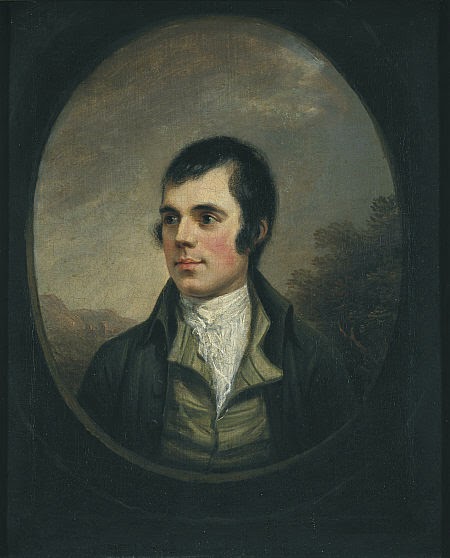
 |
| A Red, Red Rose courtesy of Scott Branson (Flickr) Creative Commons |
|
A Red, Red Rose
by Robert Burns
(1794)
|
|
My love is like a red, red rose
|
|
That’s newly sprung in June :
|
|
My love is like the melody
|
|
That’s sweetly played in tune.
|
|
As fair art thou, my bonnie lass,
|
|
So deep in love am I :
|
|
And I will love thee still, my dear,
|
|
Till a’ the seas gang dry.
|
|
Till a’ the seas gang dry, my dear,
|
|
And the rocks melt wi’ the sun :
|
|
And I will love thee still, my dear,
|
|
While the sands o’ life shall run.
|
|
And fare thee weel, my only love,
|
|
And fare thee weel a while !
|
|
And I will come again, my love,
|
|
Thou’ it were ten thousand mile.
|
 |
| Robert Burns Portrait (1787) by Alexander Naysmith source Wikipedia |
This is my first choice for the Deal Me In Challenge. It is a poem put to song based on a familiar song that Burns had heard. It’s structured in four quatrains (four-line stanzas). Using similes and hyperbole, the writer expresses his great love for a fair, “bonnie lass” and the poem’s repetition enforces his feelings. Initially he likens his love to a rose, a melody, and then declares the endurance of that love. At the end of the poem it seems the writer has to go away for awhile, which is perhaps why he has written the poem. so that his sweetheart will know the strength of his feelings and of his constancy.
So far my favourite Burns poem is To A Mouse, but I really appreciate the straight-forward honesty of this one. I’m so used to little teasings and wittiness from Burns, but this poem is quite delightful!
And for Marianne, here is the poem put to music (the poem begins at about 0:40, for those who don’t like long introductions):
Deal Me In Challenge – Queen of Diamonds #1